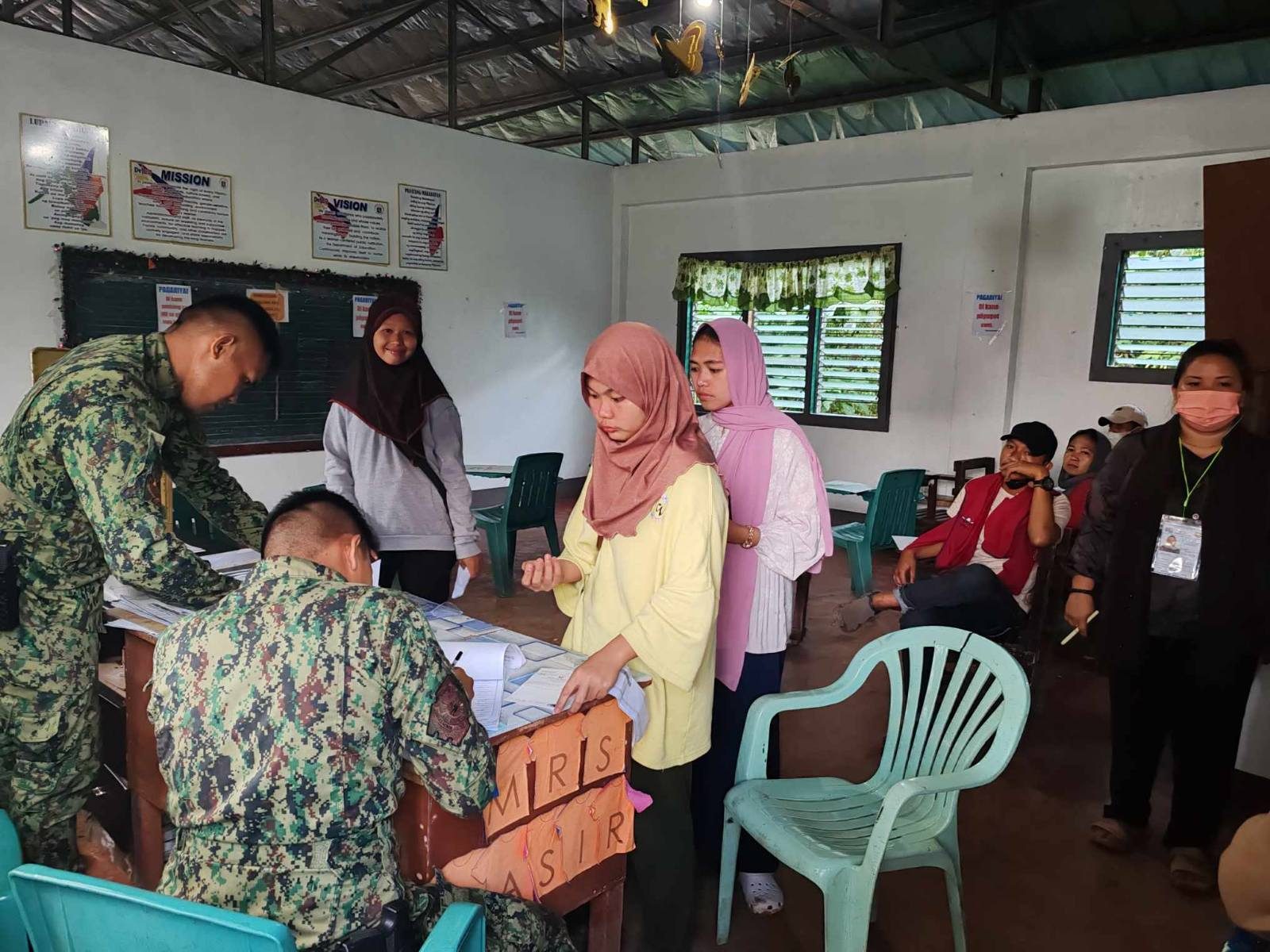SUMMARY
This is AI generated summarization, which may have errors. For context, always refer to the full article.

GENERAL SANTOS, Philippines – An elections watchdog has frowned on the Commission on Elections (Comelec) assessment, which concluded that the recent election in the Bangsamoro Autonomous Region in Muslim Mindanao (BARMM) was generally peaceful because there was no failure of elections.
The assessment by the poll body “does not explain what happened in the Bangsamoro, nor what did not happen,” noted the Council for Climate and Conflict Action Asia (CCAA) in its Critical Events Monitoring System (CEMS) bulletin.
CCAA described the elections in the BARMM as the bloodiest election in the region in the last 10 years.
The CCAA report provides post-election analysis based on 200 reports collected from the provinces of Lanao del Sur, Maguindanao del Sur, Maguindanao del Norte, Basilan, Sulu, Tawi-Tawi, and the 63 barangays in the Special Geographic Areas (SGA).
Lawyer Ray Sumalipao, the Comelec chief in the BARMM, described it as a generally peaceful, honest, orderly, and credible election in his post-election assessment.
“There was no failure of elections,” he said.
However, CCAA said data showed that the 2023 barangay and SK elections turned out to be the bloodiest election in the Bangsamoro region in the past decade, with incidents of violence scattered across the mainland.
The report cited violence such as gun attacks, stabbings, hacking incidents, fistfights, riots, harassment, and intimidation aimed at intimidating voters and supporters.
The report also highlighted ongoing threats of violence against non-Moro indigenous peoples, which disenfranchised and undermined their right to political participation.
On a national scale, the Philippine National Police (PNP) said the Bangsamoro region registered the highest number of violent incidents – 16 in total, occurring from August 28 to October 30.
Comelec data as of Thursday, November 2, showed the figures increased to 19 deaths, 11 of which are from BARMM, since the start of the elections period. There were also 28 injuries, 23 of which are from BARMM.
Data gathered by CCAA showed that there were 17 deaths in the BARMM since the campaign period began on October 19, with 11 occurring on Election Day.
The CCAA report also showed that more than 30 people were injured in 57 documented incidents of violence across the Bangsamoro region.
Even before the elections began, two supporters of a candidate in Barangay Bugawas, Datu Odin Sinsuat town, Maguindanao del Norte, were shot dead.
In Barangay Poctan, Butig town, Lanao del Sur, a village head aspirant was shot dead by his own brother following an altercation.
Supporters were also killed in separate attacks in the towns of Marantao and Lumba Bayabao, Lanao del Sur.
In Basilan, three were killed and more than a dozen were injured in separate incidents. A barangay councilor seeking re-election was shot dead by a militiaman in Lamitan City. Despite being wounded, one of the victims managed to grab the militiaman’s gun and shot him dead.
In Tipo-Tipo town, Basilan, a voter was shot dead when armed men entered a polling precinct.
In Tuburan town, six people, including a barangay chairman seeking re-election, were wounded in a gun attack.
Violence was also reported in the towns of Sultan Kudarat and Datu Odin Sinsuat in Maguindanao del Norte, and in the towns of Pandag, Datu Salibu, and Datu Saudi Ampatuan in Maguindanao del Sur, as well as in Butig, Tugaya, Lumba Bayabao, Malabang, Marogong, Maguing, and Marawi City in Lanao del Sur.
The CCAA said one incident that should not be overlooked is that more than 2,000 teachers in the BARMM did not fulfill their poll duties.
CCAA said the number of absent teachers was astonishing, and the Department of Education (DepEd) at all levels, especially in the BARMM, must explain the fear and insecurity that these teachers experienced.
“The teachers’ refusal to serve in this electoral exercise betrays the lack of trust in the ability of law enforcers to protect them and secure their polling precincts,” the group said.
CCAA also said the threat of violence against non-Moro indigenous peoples, such as the Teduray and Lambangian, did not decrease during this democratic exercise.
The group said that in Datu Odin Sinsuat town, some IPs were unable to vote because they were forced to relocate their polling precincts, while others feared for their safety.
CCAA said the 14,000 security personnel from the police and military were insufficient to guarantee peace and order in the region.
It said deploying them in place of teachers as a contingency measure was necessary, but it may have hindered their capacity to protect and defend effectively, as noted by CCAA. – Rappler.com
Add a comment
How does this make you feel?
![[Pastilan] Barangay elections 2023: Money, manipulation, and mayhem](https://www.rappler.com/tachyon/2023/11/Brgy-elections-violence.jpg?fit=449%2C449)







![[Be The Good] Freedom from ignorance, apathy](https://www.rappler.com/tachyon/2024/06/be-the-good-carousel.png?resize=257%2C257&crop=461px%2C0px%2C1080px%2C1080px)

There are no comments yet. Add your comment to start the conversation.